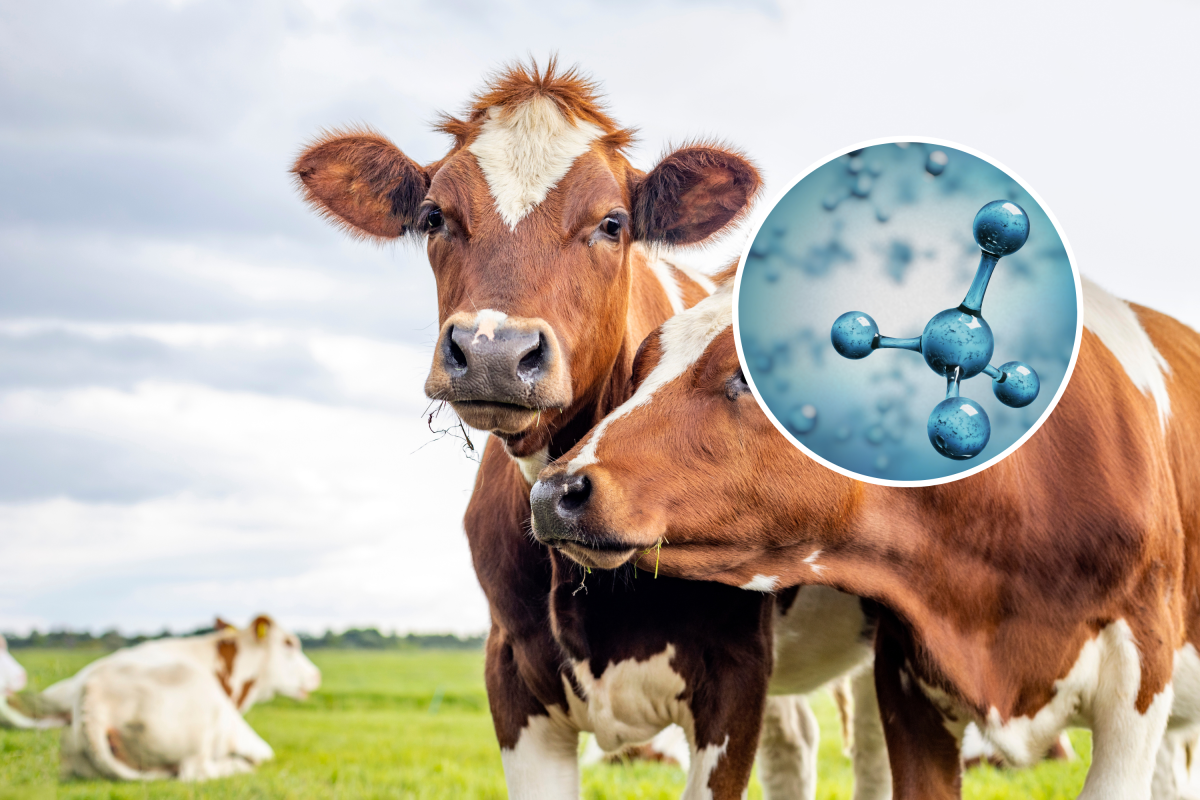Scientists have discovered that some dairy cows produce significantly less methane than others.
While farming is vital for providing food and dairy to the world, it contributes a fair amount of greenhouse gas emissions, which leaders are looking to reduce as climate change worsens.
Agricultural activities accounted for 10.6 percent of all U.S. greenhouse gas emissions in 2021, according to the Environmental Protection Agency.
However, researchers from Massey University in New Zealand have now discovered that some cows actually produce 15 percent less methane emissions—and the good news is that they still produce the same amount of milk.

The scientists' findings were published on December 13 in the New Zealand Journal of Agricultural Research.
"To be able to achieve international and national greenhouse gas-reduction targets, we need to first understand what we are dealing with," research lead author Katie Starsmore told Newsweek.
"In this case, it's methane from cows. We need to understand how much each cow is producing and if there are any differences between these animals that are producing less than what we would expect them to produce. We would then be able to identify these animals and potentially breed for lower-methane-emitting animals, while maintaining productivity."
Cows naturally produce methane when they digest food as they have microbes in their stomach that produce methane from the fermentation of their feed. Scientists have previously found that higher quality feed produces less methane than those that are harder to digest.
Methane is the second largest contributor to climate change, behind only carbon dioxide. It is a powerful greenhouse gas that is produced both naturally and as a by-product of human activities.
However, some natural methane sources like the ones that come from cows, are unavoidable.
In the new study, scientists ranked 45 Irish dairy cows by the amount of methane emissions they produced. Those that produced less were found to produce just as much milk.
Just why some cows have lower emissions than others remains uncertain—but the researchers reported that reducing methane emissions from cows could drastically reduce methane levels in the atmosphere, which could bring the world closer to greenhouse gas reduction targets.
"It is important to investigate factors that affect enteric (intestinal) methane production so that farmers and the agricultural sector can reduce their methane emissions, produce more environmentally sustainable food products for the world and also to maintain the viability of agriculture," Starsmore said.
"With the world population increasing, the world is relying on more food to be produced to feed the population, with less of an environmental impact. This is a big challenge, but research like this is helping farmers to potentially be able to reduce emissions while not affecting milk production."
Overall, the scientists represent an opportunity to, in future, only use cows that produce a lower amount of methane.
Update: This article has been updated to include comment from the lead research.
Do you have a tip on a science story that Newsweek should be covering? Do you have a question about methane? Let us know via science@newsweek.com.
About the writer
Robyn White is a Newsweek Nature Reporter based in London, UK. Her focus is reporting on wildlife, science and the ... Read more
To read how Newsweek uses AI as a newsroom tool, Click here.



